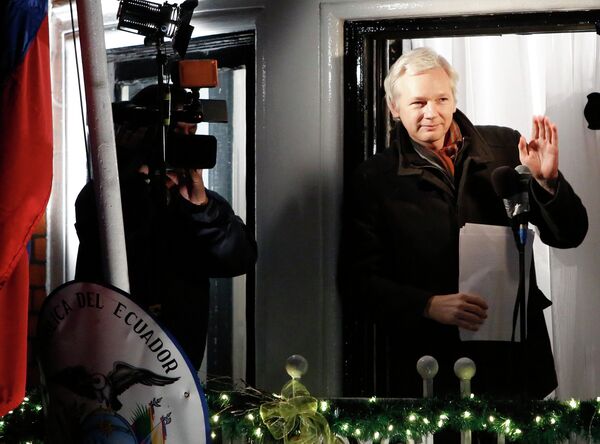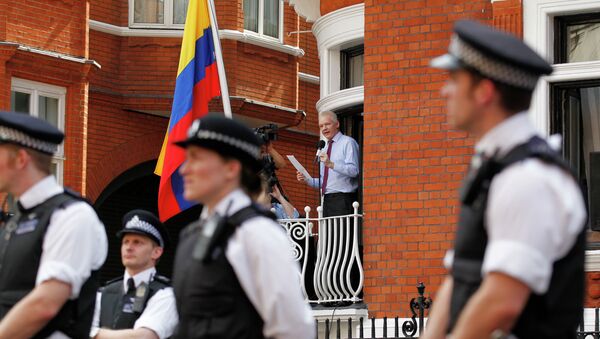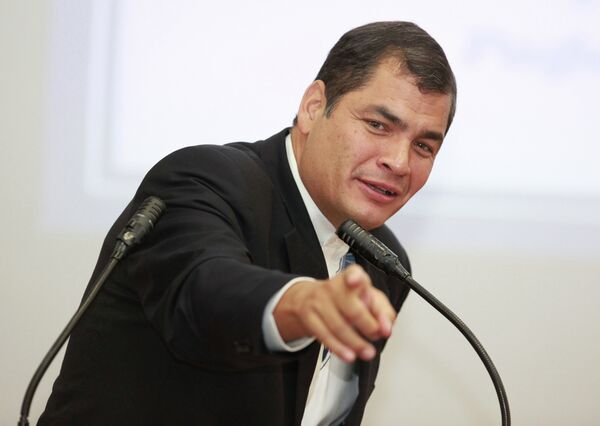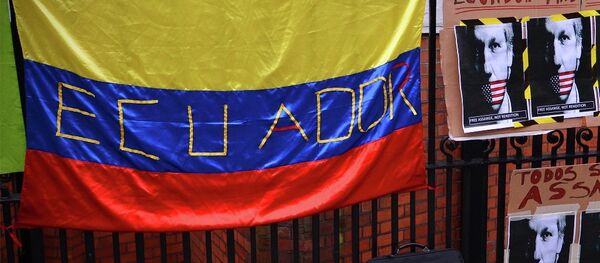On Wednesday (March 8) WikiLeaks published 8,700 files, the first part of the Vault 7 release of what it claims are secret CIA files, with the revelations so far including details of the agency hoarding hacking technologies and listing major operating systems vulnerabilities.
RELEASE: Vault 7 Part 1 "Year Zero": Inside the CIA's global hacking force https://t.co/h5wzfrReyy pic.twitter.com/N2lxyHH9jp
— WikiLeaks (@wikileaks) March 7, 2017
Assange has been holed up in a tiny apartment in the Ecuadorian embassy since June 2012, after his attempts to stave off extradition from Britain to Sweden on rape charges failed.
The UK Supreme Court rejected his final appeal against extradition to Stockholm, where he was accused of assaulting two women in 2010. He has always denied the rape charges and claimed it was part of a conspiracy to get him extradited to the United States to face charges over WikiLeaks.

Assange was offered asylum by Ecuador's left-wing President Rafael Correa, a long-term opponent of US policy in Latin America.
But Correa, who has been in power since 2007, has decided not to seek a fourth term and is stepping down next month.
The second round of the presidential elections takes place on April 2, and an opinion poll by Ecuador's Cedatos pollsters has suggested Guillermo Lasso, a former banker, is ahead of his rival Lenin Moreno by 52% to 48%.
He narrowly won the first round of the elections on February 19, but failed to land a knockout blow and must take on Lasso in the second round.
Lasso trailed Moreno by 28 percent to 39 percent, but he is expected to gain votes from some of the candidates who were knocked out and his promises to cut tax on land, cars and even soda have proved popular.
He is thought to want to change Ecuador's foreign policy and make it more friendly towards the United States, and that is bad news for Assange.
"Ecuador had (sic) no business spending a single cent protecting someone who has definitely leaked confidential information.
"I will take on the responsibility of inviting Mr. Assange to leave the Ecuadorian embassy at the latest 30 days after the start of our government," Lasso said.
On Twitter, Assange seemed to suggest Lasso's promise to expel him was linked to WikiLeaks' recent revelations about the CIA penetrating the French presidential elections.
Here's Ecuador's opposition leader (elections Sunday) saying he'll revoke my asylum after I revealed CIA penetration of the French election. pic.twitter.com/UOQVircHF6
— Julian Assange (@JulianAssange) February 17, 2017
Assange, an Australian national who describes himself as a refugee, recently tweeted a link to an interview with Correa and wrote: "Ecuador's tough outgoing president accuses possible president Lasso of 'selling out' my asylum to US."
Ecuador's tough outgoing president @MashiRafael accuses possible president Lasso of 'selling out' my asylum to US https://t.co/pb35BztXwF
— Julian Assange (@JulianAssange) February 22, 2017
But even if Moreno wins, Assange could find his life changed.
Moreno has become increasingly exasperated by Assange tweeting damaging remarks about Latin American countries which are allies of Ecuador.
Moreno told RT Spanish last month: "One thing that is clear is that Assange will have to reduce meddling in the policies of the nations we have friendly relations with."
Assange replied, again on Twitter: "WikiLeaks publishes from the EU, not Ecuador, and will not respond to pressure."
I am always happy to talk @Lenin or @LassoGuillermo.
— Julian Assange (@JulianAssange) February 21, 2017
But WikiLeaks publishes from the EU, not Ecuador, and will not respond to pressure.
Andres Mejia Acosta, a professor of international politics at King's College London, recently told Sputnik neither candidate were likely to "feel any connection with the asylum" which was offered by Correa.
If Assange is expelled from the embassy he would face arrest by the Metropolitan Police on the outstanding Swedish extradition request. The allegations against him there have been made by two women who claim he forced unsafe sex on them.
The WikiLeaks founder insists he is more worried about extradition to the US, although there is currently no extradition request from the Americans.
In January though, he said he would agree to be extradited to the US if Chelsea Manning, the US soldier who passed 70,000 diplomatic cables and other documents to WikiLeaks, was granted clemency.
A few days later, President Obama commuted Manning's sentence — who was born male and was formerly known as Bradley Manning — and she would be released in May 2017, rather than 2045.
One of his lawyers, Melinda Taylor, subsequently told Sputnik he stood by the promise to accept extradition to the US.





